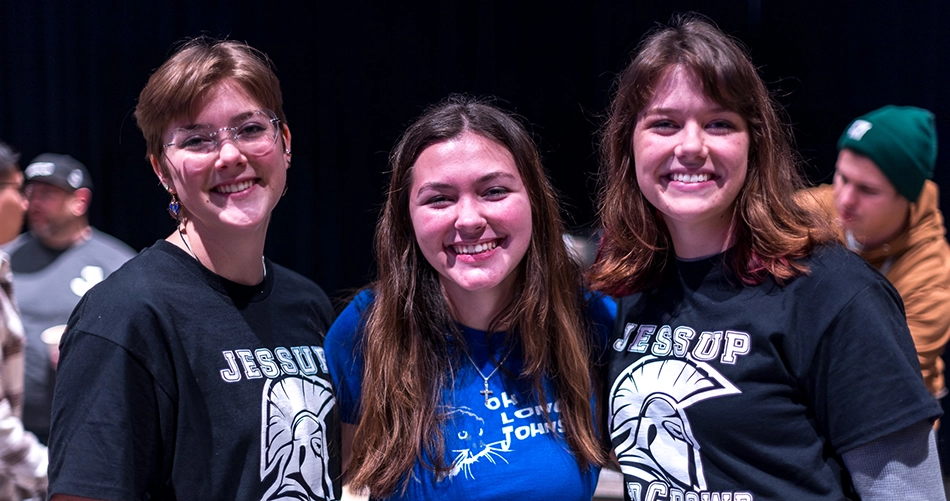
Disability Student Services at Jessup
March is national developmental disabilities month and provides a noteworthy opportunity to highlight Jessup’s disability student services (DSS) program on campus. Characterized by a group of conditions that affect language, movement, behavior, learning, or a combination of these, developmental disabilities impact roughly 17% of the population. Whether students are impacted by autism spectrum disorder, attention-deficit/hyperactivity disorder, dyslexia or hearing loss, more often than not, they try to mask their differences largely due to the stigma surrounding them.
“Our services are all about accessibility,” said Jessup’s DSS Director and alumna Amanda Barthelmes. “Having a college experience equivalent to that of their peers is key. At Jessup, we see the whole student and want them to know their disability doesn’t define them, it’s a part of them, but not their identity. We focus on their strengths and areas where they excel.”
The DSS office currently serves 110 students and offers a variety of services. Those aimed at the neurodivergent population include, but are not limited to: test proctoring, quiet spaces to take breaks, fidget toys to take to class to help with focus and increasing attention span, academic mentoring and one-on-one counseling.
Many success stories emanate from DSS where advocacy and accommodations are essential. For example, there are students who struggled in the past and later experience success when they are allowed accommodations that increase test taking time to help with processing material accurately. For others, it’s gaining organizational skills and planning strategies designed to help them overcome barriers to learning. Other successes involve students who have experienced alienation and loneliness in high school and, at long last, find community and a sense of belonging here at Jessup.
“So often we stereotype disability as a negative thing when the reality is, there’s a difference in the way those who identify as neurodivergent think,” Barthelmes said. “I’m so grateful God made us think differently because it would be a really boring place if that wasn’t the case! My students see things neurotypical people don’t see and I’m blessed to learn something new from them every day.”
A typical day for Barthelmes involves meeting with students, proctoring exams and connecting with faculty to discuss ways to help students thrive. Possessing a distinctive edge when engaging with faculty, Barthelmes draws from relationships she built with professors as an undergraduate student athlete competing in cross country and track and field. After graduation, she continued on at Jessup to earn her master’s in counseling psychology. She noticed what she loved best about counseling was the problem solving aspect, helping clients find their unique strengths. “I’m all about finding ways to overcome barriers, so when this job opened here, I knew it was a great fit for me,” she said.
Barthelmes wants all students to know that Jessup is an inclusive place for all. “Even if students have no diagnosis, they can still come in and get academic mentorship. So much of the general population experiences learning difficulties at some point. I want students to know they are not alone.”
